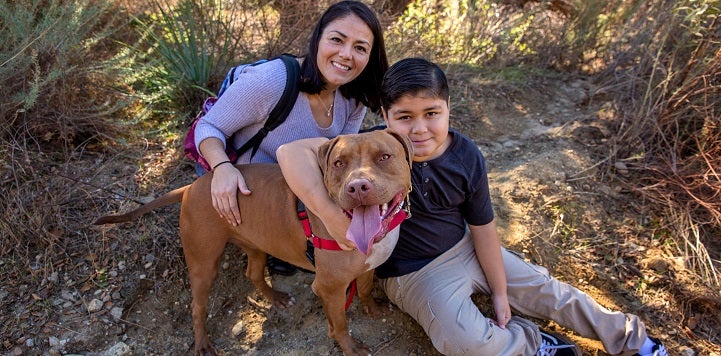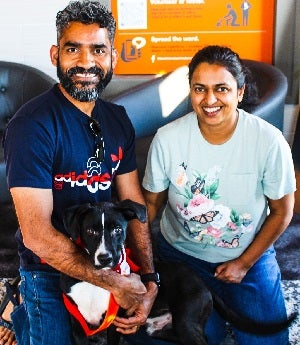
Teaming Up to Build Better Animal Ordinances
We all want safe and humane communities for people and their companion animals, but reaching that goal requires a level of collaboration at the community level. If outdated animal ordinances are still sitting on the books, such collaboration can gets stopped in its tracks. But there is another way.
We are thrilled to share “People, Pets, and Policies: Toward Community Supported Animal Sheltering,” a comprehensive guide we created together with the International Municipal Lawyers Association (IMLA). The guide provides municipalities with programs and policies that encourage the humane treatment of animals, thereby removing some of the greatest barriers to working in conjunction with the community—and accelerating lifesaving across the country.
The Origin of Outdated Ordinances
 Make no mistake, many of the ordinances that sit on the books today were built to address serious social concerns that shelters were initially established to address, like the spread of rabies. Thankfully, our landscape has changed. While rabies in domestic animals was once relatively common, Centers for Disease Control and Prevention (CDC) data now shows that the vast majority of cases (93%) in the U.S. occur in wildlife, not domestic animals.
Make no mistake, many of the ordinances that sit on the books today were built to address serious social concerns that shelters were initially established to address, like the spread of rabies. Thankfully, our landscape has changed. While rabies in domestic animals was once relatively common, Centers for Disease Control and Prevention (CDC) data now shows that the vast majority of cases (93%) in the U.S. occur in wildlife, not domestic animals.
The greatly improved situation around rabies is likely due in large part to animal sheltering’s intensive focus on preventing the spread of this horrible illness, which speaks to the power of well-crafted legal language. The IMLA has proved a crucial and irreplaceable partner in creating model ordinances that embrace evolved language around animal issues.
A perfect example is their model dangerous dog ordinance, a revised version released in 2018 that represents a “public safety first, breed-neutral approach that focuses on the behavior of every dog and owner.” As Chuck Thompson, the executive director and general counsel of the IMLA, pointed out, one of the driving forces behind the changes was to stop discriminating against specific types of dogs and turn the spotlight on issues of personal responsibility.
IMLA’s Vital Role
Best Friends Animal Society began working closely with the IMLA starting in 2016 and found a critical partner in moving the needle in the right direction. Indeed, we discovered that we have a shared understanding that policies which are good for pets make happier and healthier communities–and can even save taxpayer dollars.
“The IMLA is the best resource for municipal lawyers around the world, and municipal attorneys are often the gatekeepers to progressive ordinances and laws,” says Ledy VanKavage, Best Friends’ senior legislative attorney. “By collaborating with us, they are shedding light on important quality-of-life issues for both people and animals that are often overlooked.”
The publication has a variety of policy proposals and guidelines that city attorneys can use as models for their own communities. Among the topics covered are “Putting Public Safety First: Why Breed-Specific Laws are the Wrong Choice for Your Community”; “Pet-Friendly Government Subsidized Housing: Good for Taxpayers and Pets”; and “Public-Private Partnerships.”
We believe these types of revised policies will guide local leaders in crafting policies that help shelters to increasingly become no-kill—something that recent polls show the public strongly supports. For instance, 84% of Americans believe it is important to have no-kill shelters in their area, and 55% are willing to donate to make it happen.
“Partnering together for this project highlights the importance of sound pet lifesaving policies in communities around the nation,” says Best Friends CEO Julie Castle in a personal letter that opens the guide. “The leadership and insight shown by IMLA’s staff and members in drafting this publication is a testament to their commitment to building better policies for pets and people alike.”
Now that’s a great example of successful collaboration.
You can download the guide on our website. You watch the recording of our town hall on “People, Pets, and Policies: Towards Community Supported Animal Sheltering” here. Our panel of experts discussed topics from the manual and the newest trends in community-supported animal sheltering.

Liz Finch
Senior Writer
Best Friends Network
If you enjoyed this program spotlight, you can find our complete catalog of spotlights here.